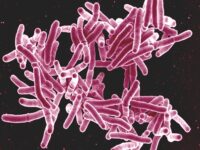A common saying is that humans are made up of 60 percent water, but it is less commonly known that for every cell in your body there are up to 10 bacteria present as well. While they are generally thought to be harmful, mutualistic bacteria are essential for proper intestinal function. The group of microorganisms found in the gut is referred to as the microbiome. These organisms are crucial to the process of digestion. Many studies have found links behind the microbiome and diseases including irritable bowel syndrome and Parkinson’s disease. It also could explain the side effects of antibiotics including abdominal pain, indigestion, and nausea. Based on this research, several supplements have arisen which claim to promote gut health. However, they are not FDA approved, so it is important to assess independently the impact of these supplements.
Some foods, such as yogurt, naturally contain probiotic bacteria that impacts the microbiome. In fact, the yogurt-making process utilizes live bacteria to ferment milk into yogurt. This process usually uses Lactobacillus bulgaricus and other bacteria, which are then present in the final product. Multiple studies have been conducted and connected frequent yogurt consumption with a decreased risk of cardiovascular disease, diabetes, and kidney disease. One study conducted by Daniel J. Lisko et al used advanced DNA sequencing techniques to evaluate the impact of a high-yogurt diet on the microbiome. The data showed a high variation between individuals, likely a result of environmental factors on the microbiome. However, their study also demonstrated a significant change in bacterial composition as a result of yogurt consumption but did not determine the impact of the change because there is little research on how individual microbes affect the microbiome. Further, the European Food Safety Authority concluded that the consumption of yogurts containing Lactobacillus delbrueckii and Streptococcus thermophilus can help alleviate lactose intolerance, since they contain bacteria to break down the lactose.
The importance of the microbiome has led to the prevalence of microbial supplements, yet little data exist supporting their efficiency. Since 2019, there have been thousands of scientific papers that discuss the relationship between the microbiome and the host, but this has not yet been translated into clinical applications. This is likely a result of the high degree of diversity within the microbiome. The Human Microbiome Project sampled 250 volunteers and found between 3,500 and 35,000 species of bacteria per person. Further, because of the nature of bacteria, the amount of genetic information contained within them is about 150 times that of humans. This difference, along with the high genetic diversity within bacterial families, makes it extremely challenging to deduce the role of a specific species within the body. While certain supplements may benefit people with certain conditions, the lack of consistency and understanding of the mechanisms of action prevents probiotic supplements from being FDA approved. Therefore, as a potential consumer, it is important to understand that commercial probiotic supplements have been proven safe to consume but not proven to be effective.
Overall, the microbiome is an essential part of how the human body operates, in which dysfunction can contribute to several prevalent diseases. Because of the known prevalence of bacteria in the gut microbiome, a number of products contain probiotics to supposedly boost microbiome health. These claims are extremely hard to validate as several environmental factors result in a large amount of variability both within a single microbiome and between individuals’ microbiomes. Yogurt has been proven to assist with lactose digestion as well as decrease risks for a number of diseases. While current research indicates the importance of the microbiome, further research will hopefully better characterize it for treatment and supplementation.
Source: 1
Image Source: Pixabay






